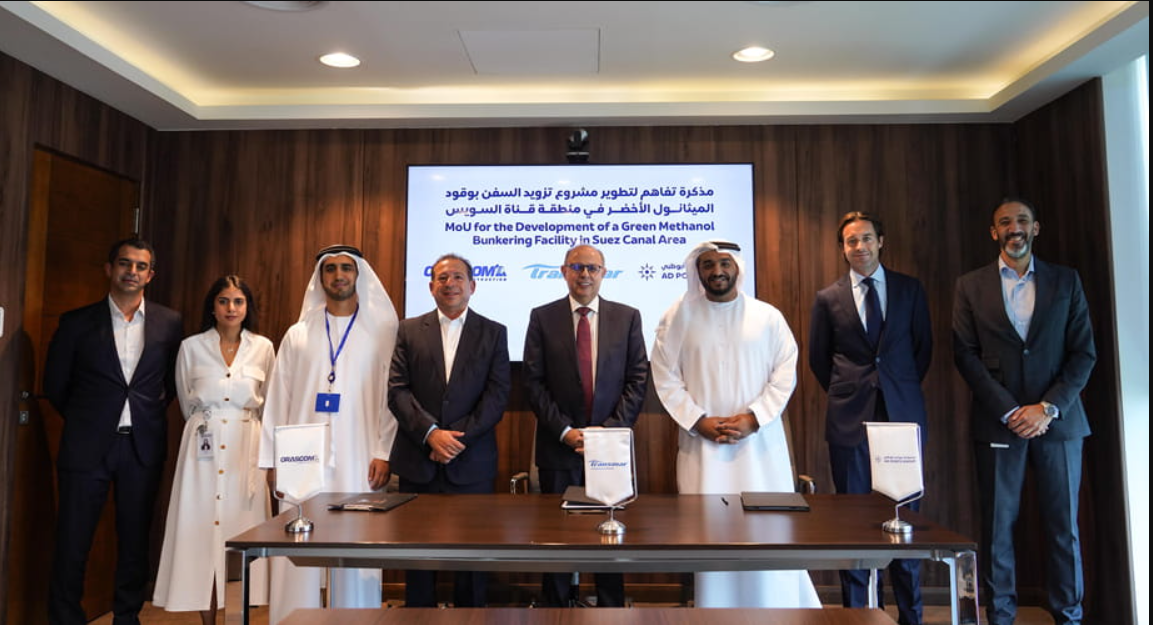
AD Ports Group, Transmar, and Orascom Construction have come together to sign a Memorandum of Understanding (MoU) for the development of a green methanol storage and export facility in Egypt. This collaboration aims to facilitate the decarbonization of the maritime sector by providing low-carbon fuel alternatives.
Green methanol, a synthetic fuel produced without polluting emissions, holds immense potential as a clean energy source for maritime transportation. Produced from renewable sources such as green hydrogen, it offers a promising solution for reducing carbon emissions in industries facing decarbonization challenges.
Compared to traditional fossil fuels, green methanol boasts several advantages. It burns cleanly, emitting fewer toxic substances into the atmosphere. Its liquid form makes it easier, safer, and more cost-effective to store, transport, and handle, utilizing existing infrastructure efficiently. Moreover, its versatility extends beyond the maritime sector, offering potential applications in industries like chemicals and plastics.
The establishment of this green methanol facility in Egypt will not only cater to the growing demand for low-carbon fuel in the maritime industry but also aligns with AD Ports Group’s overarching decarbonization strategy and expansion into clean energy solutions. By providing bunkering solutions for green methanol-powered vessels, this initiative underscores the consortium’s commitment to driving sustainable energy practices.
Captain Ammar Mubarak Al Shaiba, CEO of the Maritime & Shipping Cluster at AD Ports Group, emphasized the significance of this partnership in advancing sustainable energy initiatives. He stated, “This initiative not only aligns with the UAE’s decarbonization goals but also accelerates the energy transition in shipping, positioning us at the forefront of the green hydrogen revolution and enabling us to contribute to global environmental stewardship and economic diversification.”
As the maritime industry strives to meet the International Maritime Organization’s (IMO) greenhouse gas (GHG) reduction targets by 2050, green hydrogen-based fuels are poised to play a pivotal role in this transition. According to the International Renewable Energy Agency (IRENA), global demand for green methanol is projected to surge, reaching an estimated 4 million tonnes per year within the next five years.
The consortium’s commitment to developing green methanol infrastructure signifies a proactive approach towards addressing climate change challenges while fostering sustainable economic growth in the region and beyond.

